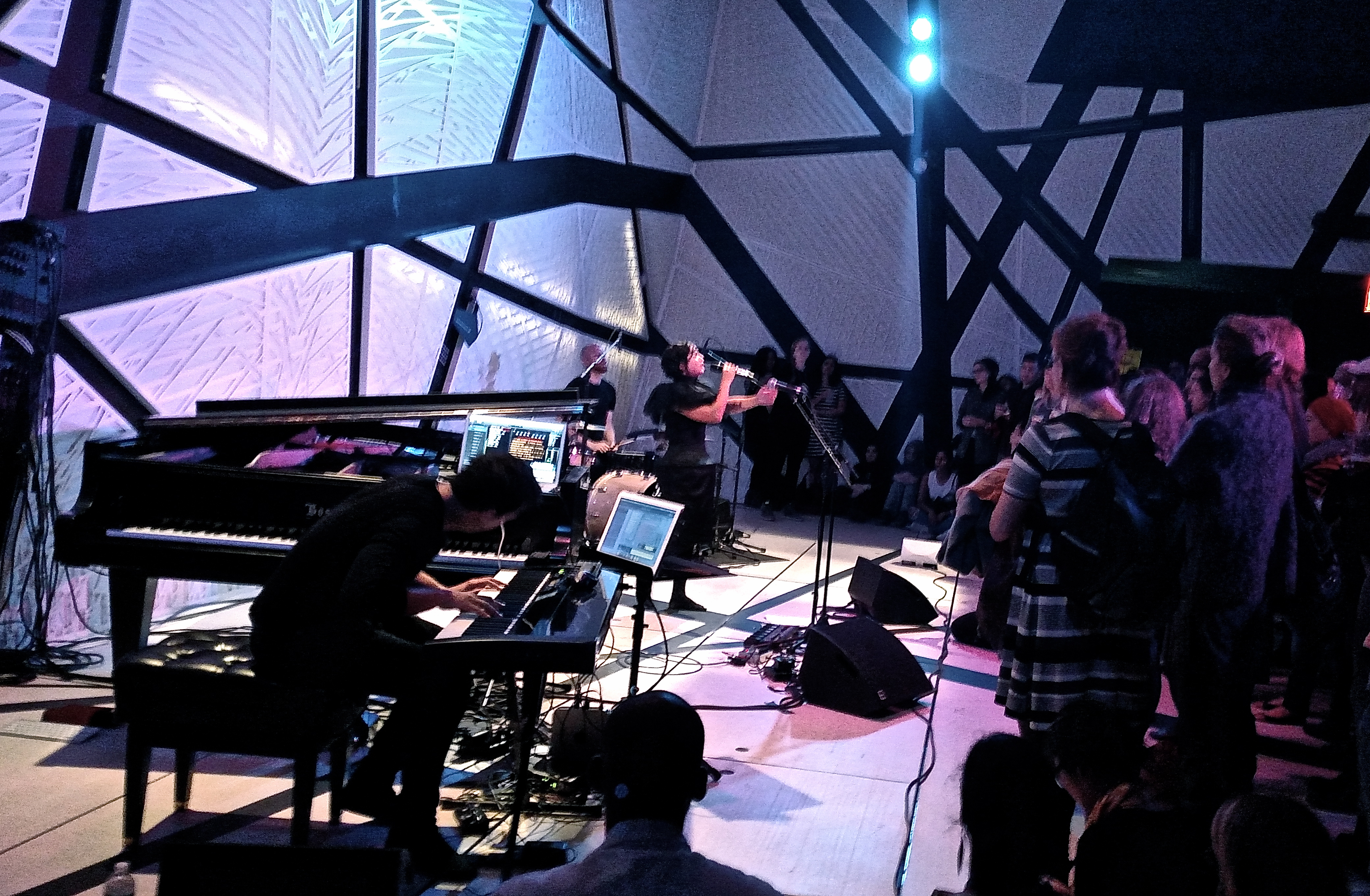With Emel Mathlouthi, I confronted the difficulty of listening to political song in a language I do not understand. In some ways this should not have been hard. She tells us what the titles mean or the lyrics refer to: freedom and justice, breaking silence with speech and putting pen to paper, not to avert the eyes but to see. Not all of her songs are in Arabic, or its Tunisian variant. They are in French, English, Spanish and Persian, too; and some of those she sang Monday when I saw her at National Sawdust in Brooklyn. Nor is the political of necessity explicit or controversial: it can consist of a salutary impulse, like love or justice, that acquires its politics through context, and which can be expressed in words (“all you need is love,” as the Beatles sang) or purely in sound. That the work of this striking singer-songwriter has the latter quality is beyond doubt, a sonority that is inspirational, and in some way unifying, regardless of what is said.
Still, there is the danger, hearing a voice so transporting, of falling into pure aesthetic appreciation, or a psychology of spiritual uplift, and forgetting the particulars addressed by her art. Mathlouthi draws from a deep well of Arabic song, but also from the politics she embraces, which is at base the necessity of the democratic, the representative, the secular and the cosmopolitan to the possibility of freedom, be it personal, national, political, economic or religious. Whether all of these stones can be touched, and in what order, is of great urgency in her part of the world and elsewhere, even here. She relocated to Paris when she was banned from the radio in Tunisia, and was later said to have been the voice of the Arab spring, with songs like Ya Tounes Ya Meskina (“Poor Tunisia”) and Kelmti Horra (“My Word is Free”). A YouTube search finds her paying homage to Che Guevara and in solidarity with Palestine, where the Israeli authorities barred her from performing live (Nací en Palestina is hauntingly good, sung in Spanish). She was influenced by Joan Baez, another singer whose purity of voice can obscure the context of her politics.
But astride the danger is the virtue of that larger salutary impulse, the general feeling that underlies convincing political solutions. Everything in her music is arrayed against hate, and nothing in it preaches, as the expression has it, to the converted. It inspires, if all else fails, the already committed to proceed without rancor, but has the potential, at least, to draw into the circle of its beauty those hostile to its cause, and from there, perhaps, one can go forward.
None of that should be forgotten as you allow her to enrapture you. Mathlouthi is, in purely aesthetic terms, extraordinary. She walked onstage in what she described as an “art piece dress” by Ahmed Talfit, looking like a figure from the Bauhaus ballets of Oskar Schlemmer. Her movement was, at times, pure geometry, like a robot running out of power as a song wound down, or electrified in perfect consonance with the music. Her art is simultaneously primal and futuristic, organic and technological, connected to the body yet amplified by synth-pop and electronica. She sang shoeless in stockings, her feet weighted and supple, manipulating pedals, balancing askew on one leg, waddling, or standing firm: breath and posture as performance art, yet also a work of the spirit. Her themes are liberty, alienation, and the peril of silence. The latter is important, for while she spoke of it as something to be broken, it is also the ground of her music, more than it is of most. Something in her sound calls up the silence, makes us aware of it, not as a void but a place of spiritual potential. Sometimes she spins, with a hint of Sufism, making visible what feel like incipient patterns, energy in the shape of body and voice.
That Mathlouthi belongs in the company of the world’s great voices did not surprise me. The avant-garde aspect of her work did. The post-modernist design of the National Sawdust concert hall, newly inaugurated as a space for new music, was ready made for it. Her politics not only survived the range of aesthetic experimentation she displayed, but were ennobled by it, and free of self-righteousness. From the liberty she espouses, and desires for others, there is nothing to be feared.
For more on Emel Mathlouthi, click here. Visit National Sawdust for information on events at that venue.
